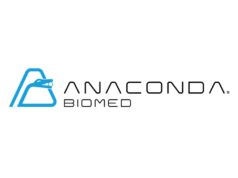Results from a clinical study published 14 January 2013 in The New England Journal of Medicine show that use of Medtronic deep brain stimulation therapy provides superior benefits for patients with early motor complications from Parkinson’s disease when compared with best medical treatment only, according to a company release.
The large, multicentre, randomised, controlled trial to evaluate Parkinson’s patients with early motor complications showed patients treated with deep brain stimulation therapy and best medical treatment reported a mean improvement of 26% in their disease-related quality of life at two years (p=0.002), compared with no improvements in patients treated with best medical therapy alone. The clinical trial included 251 people with Parkinson’s disease at 17 centres in Germany and France and followed them over the course of two years.
Additional key EARLYSTIM study findings at two years include:
- A 53% improvement in motor skills (in an off-medication condition) in patients treated with Medtronic deep brain stimulation therapy, compared to no change in those receiving best medical therapy only (p<0.001).
- A 30% improvement in various activities of daily life, including speech, handwriting, dressing and walking, in participants with Medtronic deep brains stimulation therapy while in the worst condition (“off time”), compared to a 12% decline in those receiving best medical therapy only (p<0.001).
- A 61% improvement in levodopa-induced complications, including dyskinesias and motor fluctuations, in participants receiving Medtronic deep brain stimulation therapy at two years, compared to a 13% worsening in those only receiving best medical therapy (p <0.001).
- A 39% reduction in daily levodopa equivalent dosage in the Medtronic deep brain stimulation therapy group, versus a 21% increase in dosage in participants receiving best medical therapy alone (p<0.001).
“These results signal a shift in the way patients with Parkinson’s disease can be treated, and prove that deep brain stimulation therapy can improve patients’ quality of life even in the earlier stages of Parkinson’s disease, when fluctuations and dyskinesia just start and clinicians traditionally rely solely on drugs,” said Günther Deuschl, professor of Neurology at Christian-Albrechts-University in Kiel, Germany, and lead investigator of the EARLYSTIM study for Germany.
“These results can allow clinicians to feel confident using deep brain stimulation therapy earlier in the progression of the disease for patients meeting the appropriate selection criteria,” said Yves Agid, professor of Neurology, Pitié-Salpêtrière University Hospital in Paris, France, and lead investigator of the EARLYSTIM study for France.
According to the company release, currently, deep brain stimulation therapy is primarily used to treat Parkinson’s patients in the advanced stages of Parkinson’s disease with disabling levodopa-induced motor complications which can no longer be treated successfully with medication alone. EARLYSTIM trial participants on average had been experiencing symptoms of Parkinson’s disease with mean disease duration of 7.5 years, roughly five years less than participants in earlier trials, allowing researchers to test the benefits of deep brain stimulation therapy when motor fluctuations and dyskinesia are of recent onset and occupational and psychosocial competence is still maintained. The enrolled patient population was also at an earlier stage of the disease as evaluated by disability staging criteria of the Hoehn & Yahr scale, which is a commonly used system for describing how the symptoms of Parkinson’s disease progress.
“This is an exciting new development in the management of Parkinson’s disease. This study shows that it is not only safe to treat Parkinson’s patients at an earlier stage with deep brain stimulation, but also that patients receive therapeutic benefits over best medical management. In other words, this expands the range of the therapeutic window during which patients can benefit from deep brain stimulation,” said Lothar Krinke, vice president and general manager of the global deep brain stimulation business in Medtronic’s Neuromodulation division.
The clinical trial’s primary safety parameters, such as psychological well-being and memory, and the overall incidence of adverse events did not differ significantly between the two treatment groups. Compared to best medical therapy, there were more patients in the neurostimulation group with serious adverse events. This safety profile is similar in type and frequency to current Medtronic deep brain stimulation therapy for Parkinson’s disease.












